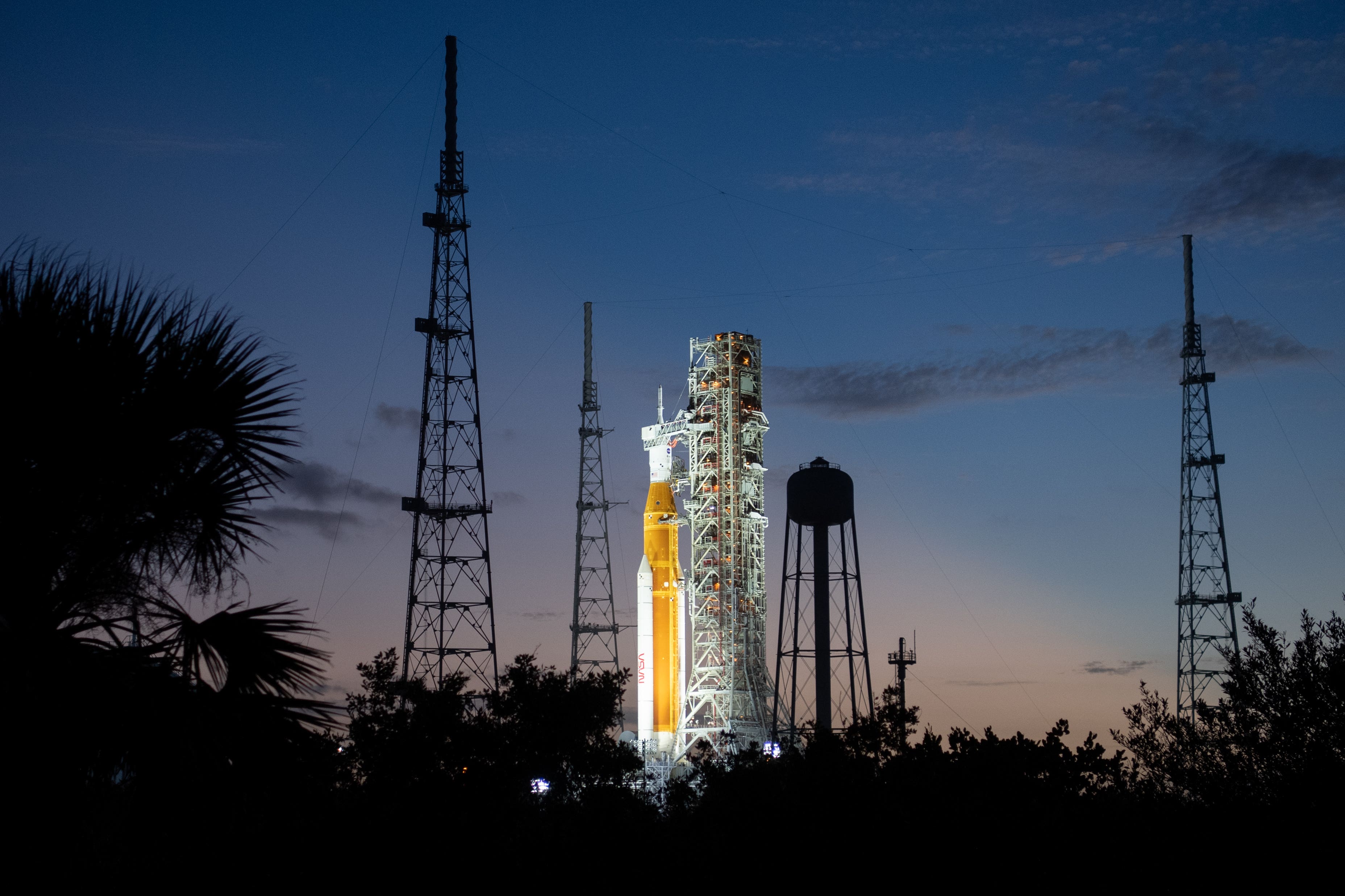Nasa Artemis moon mission launch planned for Wednesday
Mission managers met on Monday to discuss the flight readiness of the rocket and spacecraft after it was slightly damaged by Hurricane Nicole.

Your support helps us to tell the story
From reproductive rights to climate change to Big Tech, The Independent is on the ground when the story is developing. Whether it's investigating the financials of Elon Musk's pro-Trump PAC or producing our latest documentary, 'The A Word', which shines a light on the American women fighting for reproductive rights, we know how important it is to parse out the facts from the messaging.
At such a critical moment in US history, we need reporters on the ground. Your donation allows us to keep sending journalists to speak to both sides of the story.
The Independent is trusted by Americans across the entire political spectrum. And unlike many other quality news outlets, we choose not to lock Americans out of our reporting and analysis with paywalls. We believe quality journalism should be available to everyone, paid for by those who can afford it.
Your support makes all the difference.Nasa will try to launch its Artemis moon mission on Wednesday, after a series of failed attempts earlier in the year.
Nasa is now targeting 6.04am for the launch of Artemis 1, which will test the agency’s Space Launch System (SLS) rocket, Orion spacecraft, and the ground systems at the agency’s Kennedy Space Centre in Florida.
The uncrewed mission around the moon will pave the way for a crewed, flight test and future human lunar exploration as part of Artemis.
Mission managers met on Monday to discuss the flight readiness of the rocket and spacecraft after it was slightly damaged by Hurricane Nicole.
They determined that there is a low likelihood that if additional material tears off it would pose a critical risk to the flight.
They gave the launch “go” to proceed, and final checks are being carried out before the launch window on Wednesday.
The 322ft (98m) tall SLS rocket, the world’s most powerful rocket to date, is due to take the Orion capsule, powered by the Airbus-built European Service Module (ESM), into the moon’s orbit.
The flight, which will carry mannequins rather than astronauts, marks the next chapter in putting humans back on the moon.
There will be people on board for subsequent missions, with the first crewed flight into space scheduled for 2024.